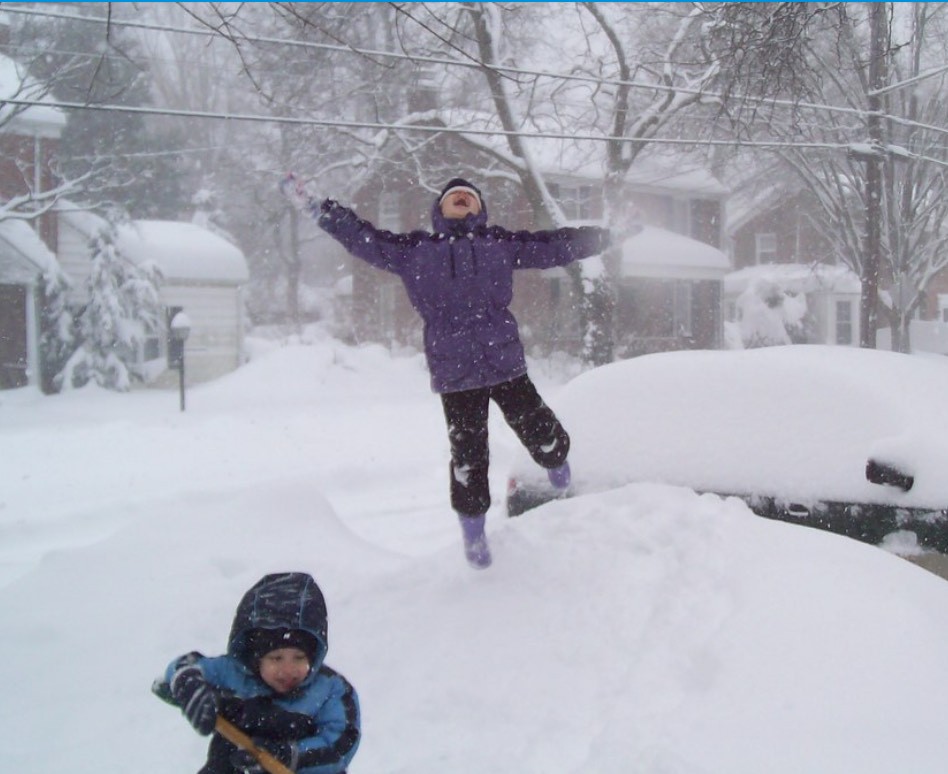When a snowy storm hits, almost every single kid spends the night before school wishing for a snow day. A day where you are supposed to take a break from school enjoying the warm inside or playing in the snow outside because the conditions are not safe enough to have school. But would you still be wishing if you knew you would still have to do school through a computer at home? Or if you knew it would cost you an extra day at the end of the school, creating less time for summer? District 11 is still pondering these questions.
An e-learning day would consist of hopping onto your Chromebook, dusting off good old WebEx, and “zooming” your teachers and other classmates while doing online-based assignments. Freshman Morgan Fisher says, “I would rather have e-learning days. It would be nice to just stay at home, plus we wouldn’t need to do Webex, but just log on (to Schoology).” This is a common thought when considering e-learning, how it would be easy to just stay home in pajamas instead of having to be fully present and focused.
Studies from author Devlin Peck, a “leader in the e-learning industry” show statistics on how online is just as effective as in school and “…also reduces study time by 40% to 60% for students and employees alike.”
Some students argue though, like freshman Madison Ibarra, who says “Online learning makes it harder to understand, especially with our teachers not actually here, and it can also be sometimes intimidating.” Some students find that learning can be more difficult through a screen and it’s not as easy to ask for help. For visual learners, online education tends to be more strenuous. Having a face-to-face lesson and receiving the material upfront can be better for your memory too.
Even for teachers, e-learning can have its downsides. They now have to create or figure out new plans that are attainable for students at home and are on track with the course. “In terms of e-learning, sometimes snow days are unexpected, so teachers now have to make work adjustments, and post everything online,” says Assistant Principal Rebecca Rivers “There’s also the question of, ‘Did everyone bring all their supplies home?’ and ‘Do they have access to good internet?’”. Online learning can also take away time to go outside and enjoy a day off for staff, students, and their families.
The alternative option would be extra days at the end of the school year. In summary, this would mean the actual last day of school would be pushed back by however many days we need to make up for, for example, three more days of school during the time when it is technically summer break. Asst. Principal Rivers adds, “The positive is how instruction would be more traditional and there is full access to your teachers in real-time. That way you can also see your friends.” Extra days could be helpful in the way that you might retain the information better, have more collaborative learning opportunities, and can rely on others rather than just yourself to receive assistance or complete work. “Extra days are more easy and less distracting.” Freshman Madison Ibarra commented, “I also get to see my friends and it’s more normal.”
Although, many people find numerous downsides to extra days. Mr. Phalen, Attendance Dean comments, “The end of the school year is a sacred thing. We always know the end. It is hard when the spring semester is longer and extending it creates a lot of complications.” There’s a lot to consider with graduation and finals and looking at the more personal side, staff and students may have already planned their vacations on those extra days. Therefore, attendance could be very slim. There’s also the academics people worry about. “Extra days would force us to get up early and just be a lot harder to do. I think in-school learning would force us to remember the material, but it would be a lot less fun and students might choose not to pay attention,” says freshman Morgan Fisher, who like many students wants to enjoy the beginning bliss of summer break and prefers online studying. Although there is something else to consider, the real question every student ponders is: Is this all really necessary?
“Legally, we have to because the state says x number of hours must be completed, but there must be some way to satisfy the requirement.” Mr. Phalen says. “Some need extra days but some don’t, we have to adapt somehow.” Most students might form a consensus that either option listed above is essentially useless since whenever we come back from snow days we quickly finish things or in some cases just skip over that lesson anyway to stay on track.
These points are very understandable, to staff as well, and there could be a chance that we wouldn’t have to go online or push back school from using up all our snow days. But we have to consider that we don’t know the future and a terrible storm could hit us anytime, putting us off many days or important testing days. Plus, with some recent events with certain schools in District 11, more snow days could lead to a prominent decision in the near future. Let’s all just hope that our next days off are spent either in bed or in the snow and our summers have school way behind us.



